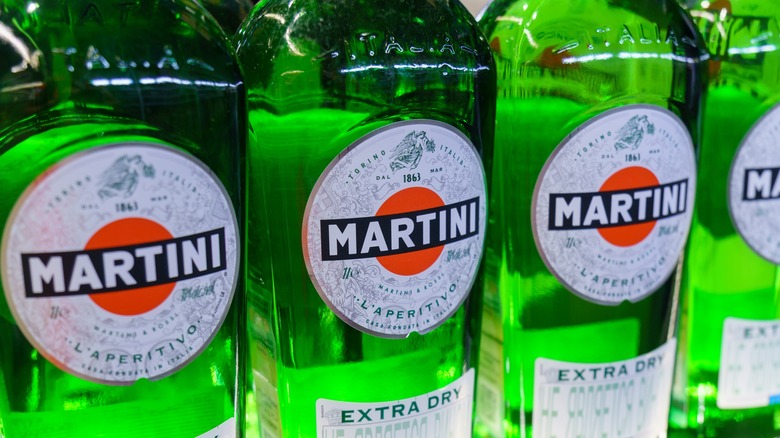How Long Does Dry Vermouth Last Once Opened?
What is vermouth? It sounds elegant and delicious, and it is, of course, alcoholic. But is it liquor like vodka and tequila? Or is it more along the lines of fortified wine? Well, according to Dry Martini, the story of vermouth dates back all the way to the days of Ancient Greece. Hippocrates, a Greek physician, blended wine, wormwood, and other spices and herbs together to create the first vermouth. It was meant to be taken medicinally and was eventually flavored with sweet ingredients like honey and cinnamon to make it more palatable. Monks continued this production and spread the method of vermouth making across Europe.
VinePair says that, throughout history, vermouth has remained either sweet (red and Italian in origin) or dry (French in origin), but both use wormwood as a standard ingredient. Vermouth is now considered an aperitif and can be drunk solo or mixed into cocktails. Dry vermouth specifically is sharp and tart in nature and is widely blended into classic and dirty martinis. But since vermouth is just a blend of wine and botanicals, Wine Folly claims that the alcohol by volume (ABV) averages between 16 and 22%, a majority of which falls into the 18 to 20% ABV range. And after opening a bottle, your vermouth's shelf life begins slowly counting down.
Vermouth lasts longer in the cold
Sweet vermouth and dry vermouth have different sugar contents, so they won't age at the same rate. Sweet vermouth will last longer than dry vermouth (via Eat Delights), but how long does the dry stuff last? MasterClass says that since dry vermouth is not a spirit, it will begin to devolve in flavor over time after being opened. If you are only using the bottle for cooking, vermouth stored at room temperature is good for few months before bittering. If you intend to use your vermouth for drinking purposes, a bottle is really only good for one month when stored at room temperature.
If you want your dry vermouth to last longer, you should store your vermouth in the refrigerator after opening. GQ highly recommends buying good quality vermouth, which will often be "passable" for up to three months after the open date. Cook's Illustrated compared bottles of vermouth stored in the refrigerator versus those stored at room temperature and found that, when stored at room temperature, vermouth lost flavor after a month. The bottles in the refrigerator, however, had twice the lifespan thanks to the lower temperature and the lack of light.

